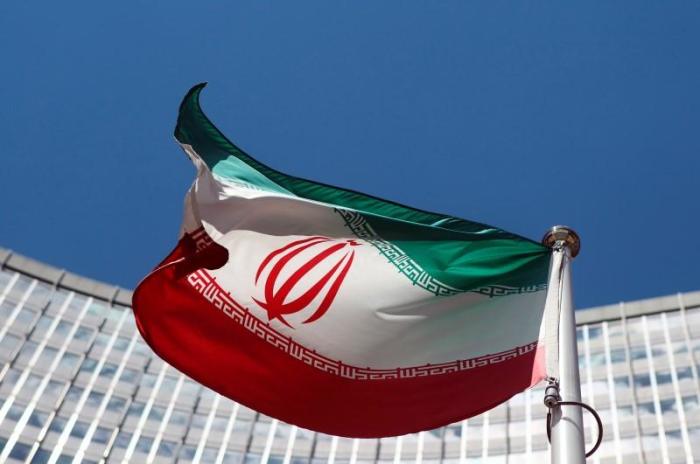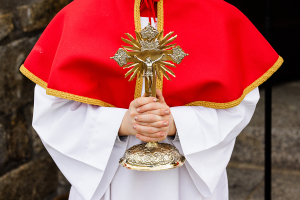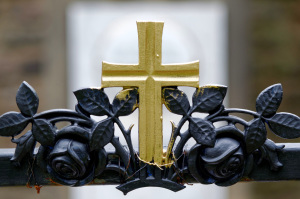Iran sentences Christian convert to 1 year in prison for 'acting against national security'

An Iranian Christian convert was sentenced to one year in prison on charges of “acting against national security" and engaging in “propaganda against the system" as crackdowns against Christians continue, the aid group International Christian Response reports.
The sentence was handed down to 65-year-old Mahrokh Kanbari on Monday, two days after she appeared before the Islamic Revolutionary Court in Karaj. Friends of Kanbari told the nonprofit group that the judge was rude to the defendant and tried to humiliate her when she disagreed with him.
Kanbari was arrested by three Iranian intelligence agents at her home last Christmas Eve. Authorities were said to have confiscated mobile phones, Bibles and other Christian-related materials.
After paying a bail equivalent to about $2,500, she was released. She was officially charged with acting against national security in January. According to International Christian Response, she was directed to go to a religious leader to be "instructed" to return to Islam.
As the watchdog group International Christian Concern reports, Kanbari's arrest is part of a "continued downward trend of religious freedom for Christians in Iran."
Iran ranks as the ninth worst country in the world when it comes to Christian persecution, according to Open Doors USA's 2019 World Watch List.
As an Islamic country of about 82 million, Iran severely restricts the rights of Christian converts as the Christian community in the country continues to grow, thanks to a network of underground churches.
Open Doors USA estimates that there are as many as 800,000 Christians in Iran today.
"Christians are forbidden from sharing their faith with non-Christians," an Open Doors fact sheet on Iran reads. "Therefore, church services in Persian, the national language, are not allowed. Converts from Islam face persecution from the government; if they attend an underground house church, they face the constant threat of arrest. Iranian society is governed by Islamic law, which means the rights and professional possibilities for Christians are heavily restricted."
In July, Assyrian Christian Dabrina Bet Tamraz, whose father, mother and brother have all been imprisoned in Iran, attended the U.S. State Department Ministerial to Advance Religious Freedom where she shared her story.
Tamraz is the daughter of Iranian Pastor Victor Bet Tamraz, who led a Farsi-language church until it was shut down in 2009. Her father was sentenced to 10 years in prison in 2017 for "acting against national security" because he formed house churches and promoted "Zionist Christianity."
Tamraz raised the plight of her family and Iranian Christians during a meeting President Donald Trump had with survivors of persecution in the White House on July 17. Trump assured Tamraz that he would raise the plight of Iranian Christians when negotiating with Iran in the future.
In his speech at the ministerial, Vice President Mike Pence mentioned Tamraz's case.
"Pastor Bet Tamraz and his family are an inspiration to freedom-loving people the world over, and we couldn’t be more honored to have his daughter, Dabrina, here with us today," Pence said.
Pence added that the Iranian people "enjoy few if any, freedoms" with the least of all being freedom of religion.
"Christians, Jews, Sunnis, Bahá’ ís, and other religious minorities are denied the most basic rights enjoyed by the Shia majority," Pence said. "And believers are routinely fined, flogged, and arrested in Iran."
Last year, it was reported that the Iranian judiciary had enacted a new policy allowing only 20 state-approved lawyers to represent activists, religious minorities, and others tried for national security or political crimes.
On July 24, five Iranian Christians arrested in February had their court hearings put on hold after they demanded to hire a private lawyer instead of court-approved ones.
According to ICC, the judge ordered two of the Christians, Pastor Matias Hagnejad and Shahrooz Eslamdous, to be transferred to Iran's notoriously abusive Evin Prison. The other three, Babak Hosseinzadeh, Behnam Akhlaghi and Mehdi Khatibi, were rearrested with bail being set at 1.5 billion Toman (equivalent to nearly $180,000).
"By eliminating the right of minorities to select their own attorney when facing politically motivated charges, Iran has taken a significant step backwards from their own constitution, which gives people the right to select their own attorney," ICC explained in a news release. "Since this amendment last year, this is the first publicized case of Christians pushing back against the policy and shows the extent to which believers face challenges in seizing any of their already severely limited constitutional rights."
Follow Samuel Smith on Twitter: @IamSamSmith
or Facebook: SamuelSmithCP




























